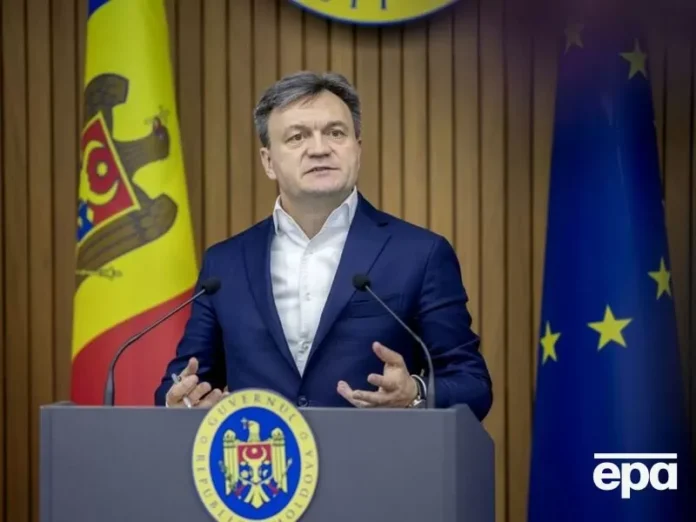Energy Crisis in Unrecognized Moldovan Region Transnistria Caused by Russian Aggression
On January 6th, during a crisis briefing in Chisinau, Moldova’s Prime Minister Dorin Rechan announced that the unrecognized region of Transnistria, also known as Pridnestrovie, is facing an energy crisis due to the aggressive actions of neighboring country Russia. According to the «Ukrainian Truth» news outlet, Rechan stated that this crisis has been caused by Russia’s interference in the region.
Transnistria, located on the eastern border of Moldova, has been in a state of political and economic limbo since its separation from Moldova in the early 1990s. It is not recognized as an independent state by the international community, but still operates as a self-proclaimed republic with strong ties to Russia. The recent energy crisis has further exacerbated the already tense relationship between Transnistria and Moldova, as well as the region’s dependence on Russia.
The energy crisis in Transnistria began in December of last year when Moldova’s main power supplier, Moldovagaz, stopped delivering gas to the region. This decision was made due to Transnistria’s mounting debt of over $6 million to Moldovagaz. As a result, Transnistria has been left without a reliable source of energy, leading to blackouts and severe disruptions in daily life.
The root cause of this energy crisis can be traced back to Russia’s aggressive actions in the region. Despite being an unrecognized state, Transnistria has been heavily dependent on Russian support for its survival. This has made the region vulnerable to Russian interference, which has been a major obstacle in resolving the ongoing conflict between Moldova and Transnistria.
Russia’s annexation of Crimea in 2014 and its ongoing support for separatist movements in Eastern Europe have increased tensions in the region. It is clear that the energy crisis in Transnistria is not a coincidence, but rather a carefully orchestrated move by Russia to maintain its influence in the region and undermine Moldova’s sovereignty.
The consequences of this energy crisis have been devastating for the people of Transnistria. Without a reliable source of energy, basic services such as heating and electricity are severely affected. Hospitals, schools, and other critical infrastructure are struggling to function, leaving the population vulnerable and in a state of uncertainty.
In response to this crisis, Moldova has offered to provide energy to Transnistria, but only on the condition that the region pays its debts to Moldovagaz. However, Transnistria has refused to meet these conditions, further worsening the situation.
Despite the challenges, Moldova remains committed to finding a peaceful solution to the conflict in Transnistria. Prime Minister Rechan emphasized the need for dialogue and cooperation between Moldova and Transnistria, with the support of the international community. It is clear that the only way to resolve this crisis is through diplomatic means, rather than resorting to aggression and destabilizing the region further.
In conclusion, the energy crisis in Transnistria is a direct result of Russian aggression and interference in the region. It not only highlights the ongoing conflict between Moldova and Transnistria but also the larger geopolitical tensions in Eastern Europe. It is crucial for the international community to support Moldova in finding a peaceful resolution to this crisis and for Russia to respect the sovereignty and territorial integrity of its neighboring countries. Only through cooperation and dialogue can the energy crisis in Transnistria be resolved, and the people of the region can have a sustainable and secure future.

